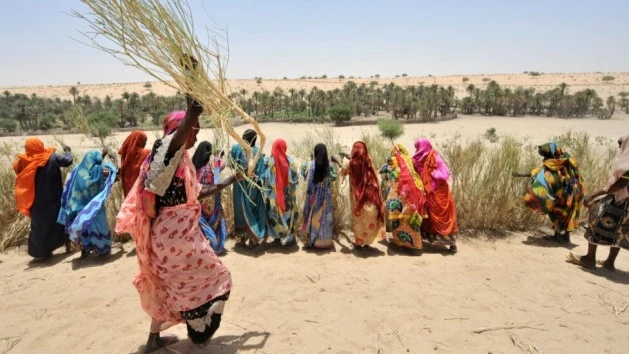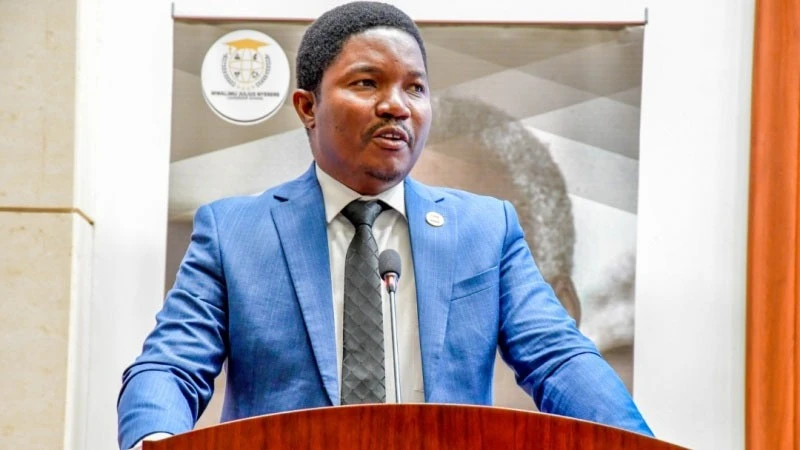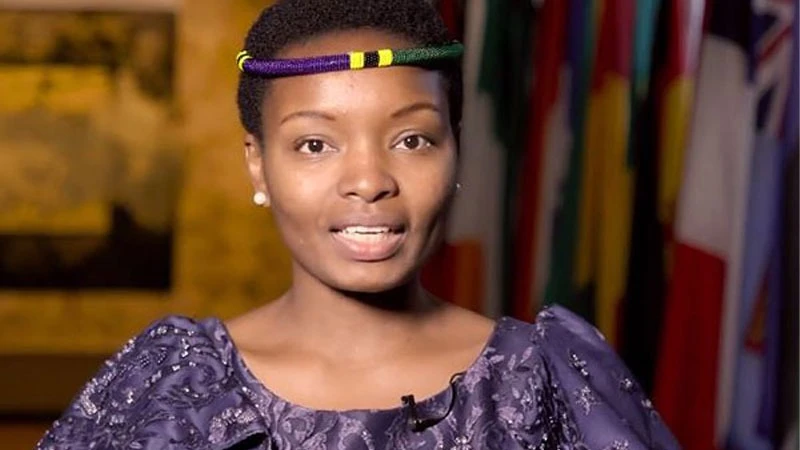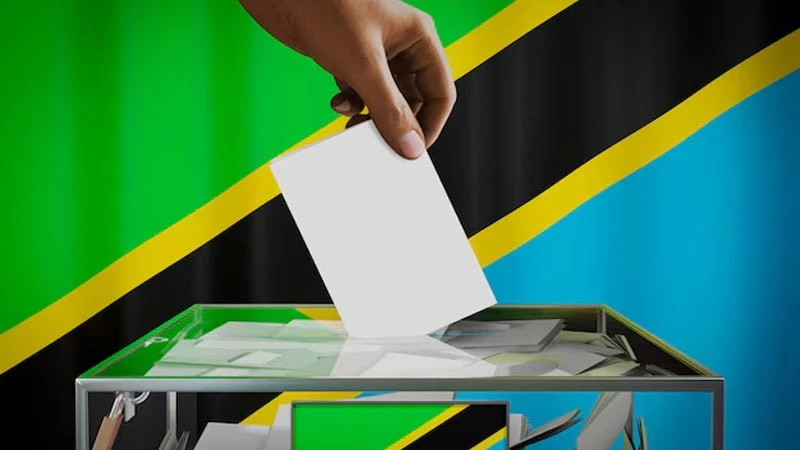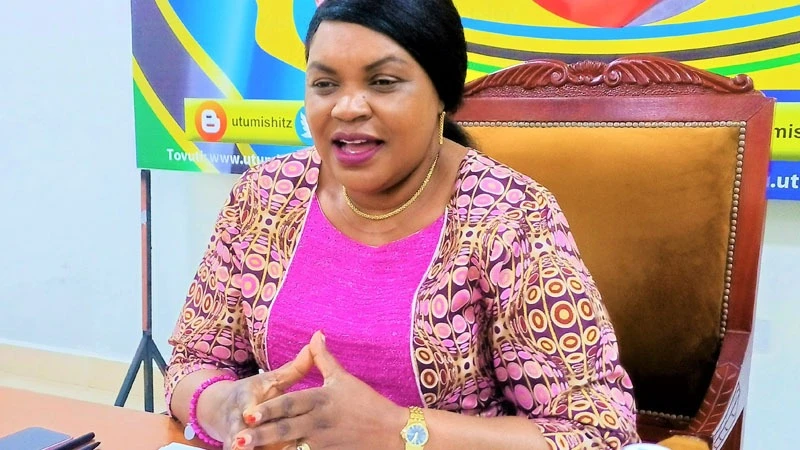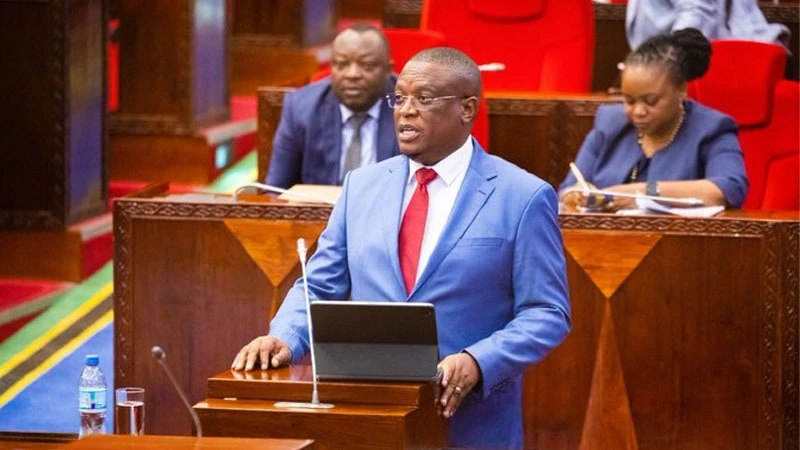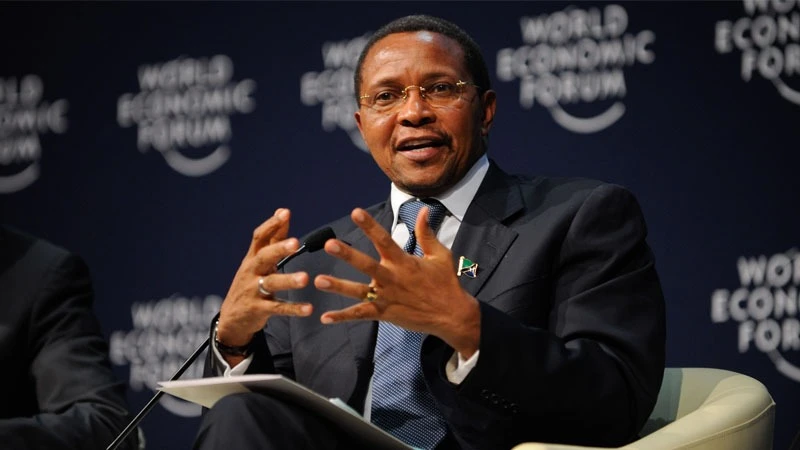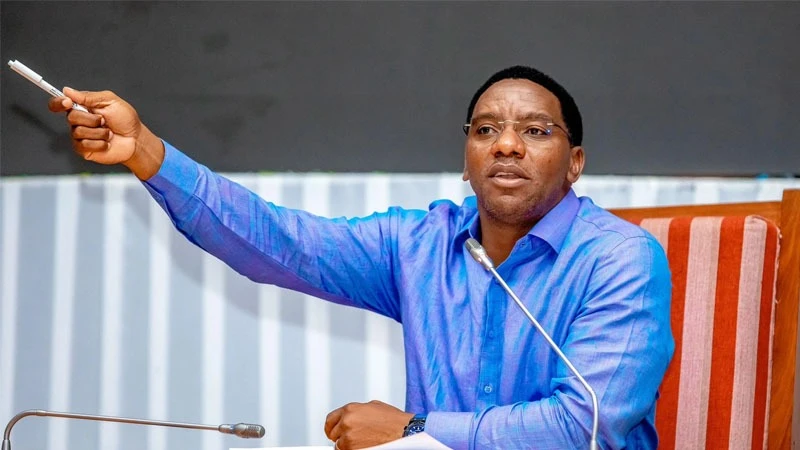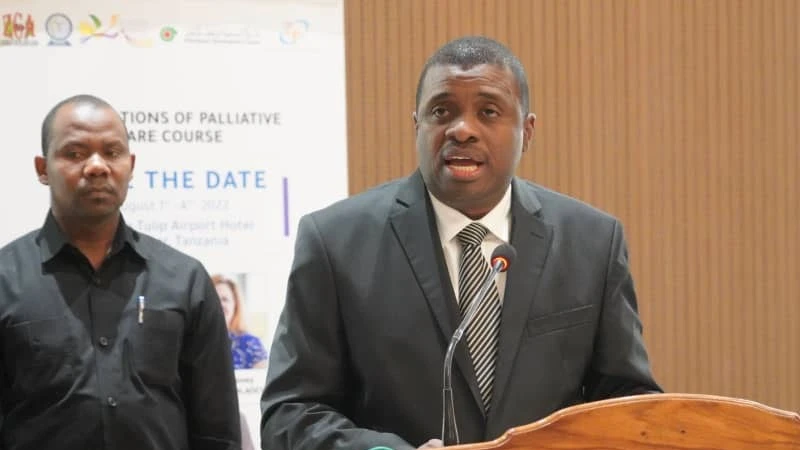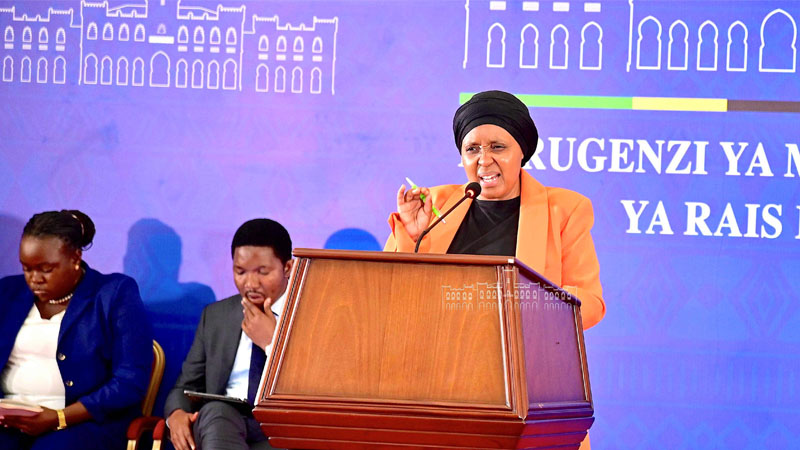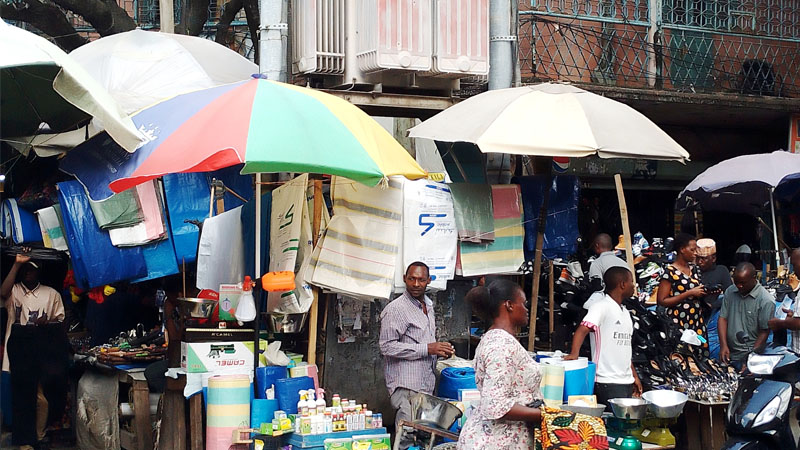Battling human trafficking: From shadows to spotlight
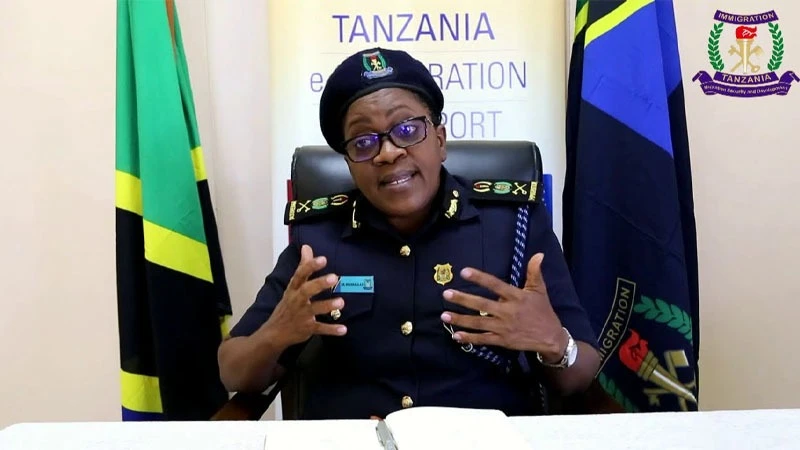
IN a daring collaboration between the Prevalence Reduction Innovation Forum (PRIF) and Community Health and Social Welfare Africa (COMHESWA), a trailblazing study titled ‘Estimating the Prevalence of Forced Labor Among Domestic Workers in Tanzania’ has thrust the grim reality faced by these workers into the spotlight.
Through rigorous investigation employing two distinct estimation methods, this initiative has uncovered a chilling truth: a multitude of domestic workers, once abroad, are ensnared in a web of exploitation and coercion, robbed of their fundamental freedoms and rights.
In a groundbreaking study utilizing advanced sampling methods, it has been revealed that over half of Tanzanian domestic workers abroad are subjected to domestic servitude. With sample sizes reaching 1,052 and 788 through Stratified Random Simple Random Sampling (STSRS) and Multi-Wave Snowball or Link Tracing Sampling (LTS) methods, respectively, the findings shed light on the widespread exploitation faced by Tanzanian workers overseas.
In response to this alarming revelation, Tanzanian immigration authorities have launched a week-long nationwide crackdown on illegal immigrants. Commissioner General Anna Makakala announced the aggressive operation, vowing to spare no effort in detecting and apprehending aliens. Makakala issued a stern warning to Tanzanians involved in human trafficking, declaring that offenders will face the full force of the law.
"Tanzanian human traffickers are significantly contributing to the influx of illegal immigrants entering the country without valid travel documents," Makakala emphasized during a recent press conference in the Morogoro region. She further disclosed that the immigration authorities have obtained a permit to recruit 820 new immigration officials, bolstering efforts to combat illegal immigration in the future.
With the government's decisive action and commitment to upholding the law, Tanzania is sending a clear message: human trafficking will not be tolerated, and those involved will be held accountable.
Dr. Angela Mbilinyi, lead researcher of the study, emphasized the significance of these findings, stating, "Our study sheds light on the pervasive exploitation faced by Tanzanian domestic workers overseas. It highlights the urgent need for action to protect the rights and well-being of these vulnerable individuals."
Despite discrepancies in population size estimates between the two sampling methods, both proved effective in providing insights into the scope of domestic servitude among returning workers. While the simplicity of STSRS made it a more feasible option operationally, the study cautioned against the use of multi-wave sampling designs for estimating the size of hidden domains within highly mobile populations.
Former Minister of State in the Prime Minister's Office, Jenista Mhagama, addressed the issue during a parliamentary session, affirming the government's commitment to rectifying the situation. Mhagama stated, "The government is dedicated to improving the engagement with foreign workers and upholding the rights and welfare of Tanzanians abroad. We have identified agencies not performing satisfactorily and are taking concrete steps to address the issue."
The study revealed that the majority of domestic workers facing exploitation abroad are women. Mhagama's remarks echoed this gender disparity, highlighting the disproportionate impact on women in the labor market and emphasizing the government's determination to rectify this injustice.
The study further debunked misconceptions regarding marital status, parental responsibilities, and education as protective factors against exploitation. Regardless of these factors, individuals remain equally susceptible to forced labor, underscoring the complex dynamics at play and the need for comprehensive interventions.
Trafficking in persons casts a dark shadow over Tanzanian society, with internal victims comprising 97 percent of cases, and a staggering 74 percent being female. Youth between 12 and 17 years old are particularly vulnerable, often trafficked for domestic servitude. Despite legislative efforts, the reality on the ground remains grim.
In response, community-based organizations, law enforcement agencies, and government bodies are rallying together to combat trafficking and support survivors. Through education, advocacy, and targeted interventions, efforts are underway to empower individuals and communities to recognize the signs of trafficking and take action against this heinous crime.
As Tanzania stands at the forefront of this fight, united in its commitment to eradicate trafficking in persons, let us not falter in our resolve. Let us stand together, recognizing that behind the statistics lie the stories of individuals stripped of their dignity and subjected to unimaginable hardships. Together, we can build a future where every individual is free to live with dignity and without fear.
The scourge of trafficking in persons casts a dark shadow over our society, trapping vulnerable individuals in a web of exploitation and cruelty. Lured by false promises of a better life, countless men, women, and children fall prey to traffickers who profit from their suffering.
Tanzania's ratification of international conventions and the enactment of legislation to combat trafficking have not dispelled a stark reality: women and children are trafficked both domestically and internationally, facing forced labor and sexual exploitation in distant lands like South Africa, Saudi Arabia, and the United Kingdom.
The statistics paint a chilling picture: 97 percent of trafficking cases in Tanzania involve internal victims, with a staggering 74 percent being female. Youth between 12 and 17 years old are particularly vulnerable, often lured from rural areas to urban centers for domestic servitude, only to find themselves trapped in a cycle of abuse and exploitation.
Yet, amidst this darkness, glimmers of hope emerge. Community-based organizations, law enforcement agencies, and government bodies are uniting to combat trafficking and support survivors. Through education, advocacy, and targeted interventions, there's a growing momentum to empower individuals and communities to recognize the signs of trafficking and take decisive action against this heinous crime.
Dr. Angela Mbilinyi, lead researcher of the study, reflects on the urgency of the situation, stating, "These statistics underscore the gravity of the issue we face. It's imperative that we join forces to combat trafficking and protect the most vulnerable in our society."
Former Minister of State in the Prime Minister's Office, Jenista Mhagama, echoes the sentiment, emphasizing the government's commitment to addressing the root causes of trafficking. "We cannot turn a blind eye to the suffering of our people. We must work tirelessly to eradicate trafficking and ensure a future where every Tanzanian lives with dignity and freedom," she asserts.
Tanzania is taking a bold stance against human trafficking, rallying its citizens to stand united in eradicating this pervasive crime. With nearly 21 million people subjected to forced labor globally, according to the International Labour Organization (ILO) in 2018, the reality of human trafficking is stark, with Africa alone accounting for 3.7 million victims. This figure is based on data from the International Labour Organization (ILO) in 2018.
This lucrative industry, ranking third in profits for organized crime, generates up to $10 billion annually worldwide, as estimated by the Council of Europe. Despite international efforts, developing countries like Tanzania bear a significant burden, contributing to 23 percent of global trafficking cases, as reported by Blagbrough in 2018.
In Africa, human trafficking is compounded by socio-political and economic challenges, fueling large-scale illegal migrations. Recognizing the threat it poses to national security, Tanzania emphasizes the protection of vulnerable populations, especially internal cases involving youth. According to the International Organization for Migration (IOM) in 2015, 97% of trafficking cases in Tanzania are internal, with 74 percent of victims being female.
In Arusha City Council, a bustling commerce hub, trafficking routes thrive along the borders with Kenya, Somalia, and Ethiopia, with 97 percent of cases being internal and 74 percent of victims being female. This data is based on a study conducted by the International Organization for Migration (IOM) in 2015.
Efforts to combat human trafficking must be comprehensive and collaborative. As the urgency to address this global challenge intensifies, transnational cooperation is essential to dismantle the complex networks behind this crime. Tanzania stands as a beacon of hope in this fight, calling on the world to join hands in securing a future where every individual can live free from fear and exploitation.
Highlighting this commitment to action, the Prevalence Reduction Innovation Forum (PRIF) and Community Health and Social Welfare Africa (COMHESWA) conducted a trailblazing study titled "Estimating the Prevalence of Forced Labor Among Domestic Workers." This research sheds light on the gravity of the issue and underlines the importance of innovative approaches to tackling human trafficking. With dedication and collaboration, there is hope for a brighter future, where the dignity and freedom of every individual are upheld.
Written By Adonis Byemelwa
Top Headlines
© 2024 IPPMEDIA.COM. ALL RIGHTS RESERVED





